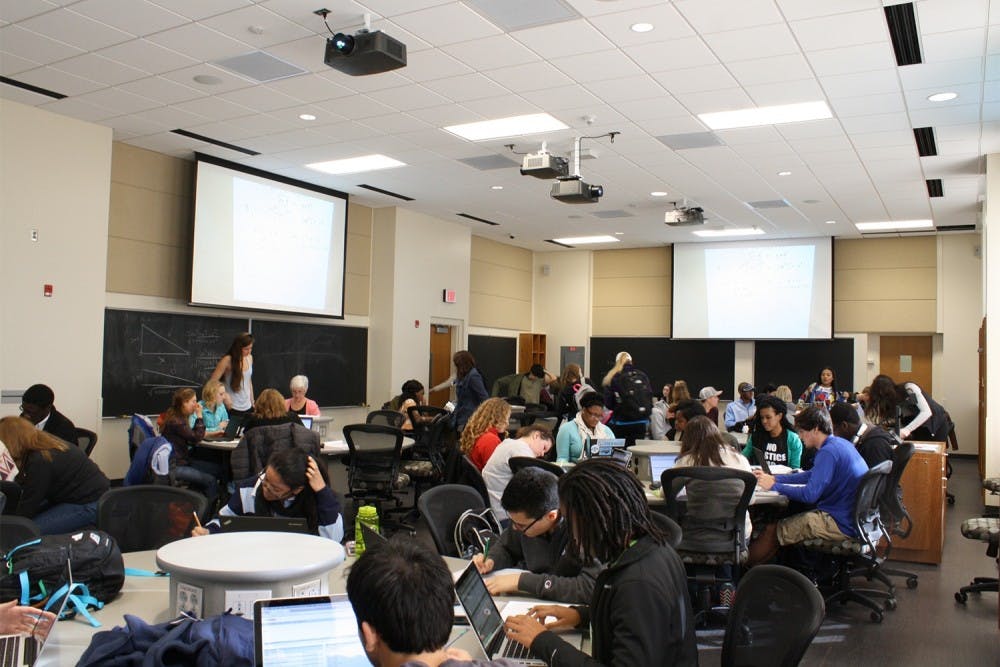Editor's Note: We updated this story to add an attribution to Liezelle Alipio, a member of The Daily Tar Heel staff.
Participation is not a required part of UNC's curriculum, yet most professors include it as a part of students' final grade. Though professors see the merits of requiring participation, for some people with social anxiety, it can pose challenges.
The course committee of the Department of Undergraduate Curricula assesses the methods professors use to evaluate participation. James Thompson, the associate dean of undergraduate curricula, believes participation should not weigh too heavily on students’ final grades.
“We frown on courses that call for more than 20 percent of the grade for participation,” Thompson said. “It is a subjective grade.”
At UNC, many professors factor participation into students’ final grades, despite the fact that it is not a required component of UNC’s course curricula. Thompson asserted that even if participation is not an official part of UNC curriculum, it is still important.
“Give and take in the classroom is the heart and the soul of the learning process,” said Thompson. “Learning should not be a one-way street.”
Thompson teaches a smaller humanities class. He recognized that in larger lecture classes, it may be harder to promote participation. He noted the use of technology such as instant polling that allows students in large classes to join discussions.
Ferrell Guillory, a professor in the School of Media and Journalism, said participation cannot be restricted to just simply talking in class.
“Participation, for me, is not just speaking up in class,” Guillory said. “It’s the ability to engage in a conversation and collaboration with each other.”



